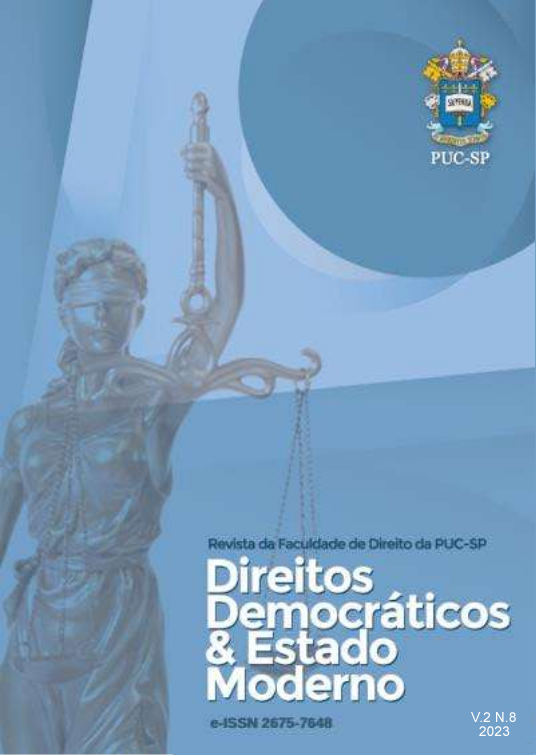Revolution 4.0, tax policy and risks for the effectiveness of fundamental rights
DOI:
https://doi.org/10.23925/ddem.v.2.n.8.60330Keywords:
Revolution 4.0, Fiscal policy, Fundamental rights, Public policyAbstract
The Welfare State, through public policies, may be even more demanded during and after Revolution 4.0, since significant changes will occur in human work (replacement of human work by machines due to the high process of automation and precariousness of a part of jobs), consumption, wealth (increase in the value of intangible goods) and the emergence of new fundamental rights, such as internet access. Public policies are mainly funded by tax revenues, which were instituted at a time when wealth was linked to human work and tangible goods. The potential problem (State tax crisis) will not have a simple solution of raising the current taxes, as it could generate opposite effects (increased tax evasion and reduced economic activity). In the present case, for the State to respond to this new reality and achieve fundamental rights, it is necessary to adapt its tax collection policy to the new wealth generated in Revolution 4.0, such as robotic taxation, intangibles, international transactions and others. This research will involve a bibliographical and economic review of the impacts of Revolution 4.0 on society, on fiscal policy and on the financing of public policies.
References
ALMEIDA, Saulo Nunes; FEITOSA, Raymundo Juliano Rego. A tributação de “robôs” e o futuro do trabalho: o papel da norma tributária face à automação. Revista Jurídica (FURB), [S.l], v. 24, n. 55 (2020), p. e9259, jan. 2021. ISSN 1982-4858. Disponível em: <https://bu.furb.br/ojs/index.php/juridica/article/view/9259>. Acesso em: 31 jul. 2022.
BOLZAN DE MORAIS, Jose Luis. O estado de direito “confrontado” pela “revolução da internet”! Revista Eletrônica do Curso de Direito da UFSM, Santa Maria, RS, v. 13, n. 3, p. 876-903, dez. 2018. ISSN 1981-3694. Disponível em: <https://periodicos.ufsm.br/revistadireito/article/view/33021> Acesso em: 17 de jun. de 2022.
BOLZAN DE MORAIS, Jose Luis. As crises do estado e da constituição e a transformação espaço-temporal dos direitos humanos. Livraria do Advogado Editora. Edição do Kindle, 2018.
CASTELLO, Melissa Guimarães. Tributação no século XXI: quem tributar na economia digital? Plataforma: YouTube. Canal: Observatório Cyber Leviathan. Disponível em:<https://www.youtube.com/watch?v=J4VxbdX7BY4>. Acesso em: 31 jul. 2022.
FILHO, MANUEL GONÇALVES FERREIRA. Direitos Humanos Fundamentais. São Paulo: Saraiva, 1993.
MALLON, Milene Susan; MATOS, Jorge Rafael. A tributação da modalidade de compartilhamento de dados por streaming no ordenamento jurídico-tributário brasileiro. Revista Direito Tributário Atual, São Paulo: IBDT, n. 44, p. 375-394, 1.º trim. 2020. ISSN 1415-8124. Disponível em: <https://ibdt.org.br/RDTA/a-tributacao-da-modalidade-de-compartilhamento-de-dados-por-streaming-no-ordenamento-juridico-tributario-brasileiro/>. Acesso em: 31 jul. 2022.
MOREL, Nathalie. PALME, Joakim. Financing the welfare state and the politics of taxation. Acesso em: <https://www.researchgate.net/publication/258076773_Financing_the_welfare_state_and_the_politics_of_taxation>. Acesso em: 15 jun. de 2022.
PAULINO. Roseli Aparecida Figaro. As reconfigurações da comunicação no cenário da Revolução 4.0 e seus desdobramentos. Revista do Instituto Humanitas Unisinos - IHU, São Leopoldo, ed. 544, p. 17, nov.2019.
SCHWAB, Klaus. A quarta revolução industrial. Tradução Daniel Moreira Miranda. São Paulo: Edipro, 2016.
VÉLIZ, Carissa. Privacy is power: why and how you should take back control of your data. 2020.
Downloads
Published
How to Cite
Issue
Section
License
Copyright (c) 2023 Democratic Rights & Modern State

This work is licensed under a Creative Commons Attribution 4.0 International License.
This work is licensed under a License Creative Commons Atribuição 4.0 Internacional.
The authors grant the journal all copyrights relating to the published works. The concepts issued in signed articles are the absolute and exclusive responsibility of their authors.
DD&EM Magazine - ISSN 2675-7648

















